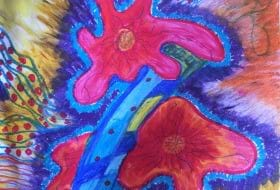
Expressive therapy is transforming the way your loved ones with special needs navigate their emotional, mental, and social challenges. Under the NDIS, this innovative approach uses creative outlets like art, music, drama, and movement to foster emotional expression and self-discovery. It provides participants with a safe space to communicate feelings that are usually tough to express verbally.
NDIS expressive therapy isn’t just about creating art or music. It’s a powerful tool for building confidence, managing stress, and improving interpersonal skills. This blog explores how expressive therapy supports NDIS participants, offering them a unique pathway to healing and personal growth.
Encouraging Emotional Expression
People with behavioural challenges or other complex conditions struggle to articulate their emotions verbally. This unique therapy provides them with an alternate means of communication through art, music, or dance. This allows participants to release pent-up emotions, reduce stress, and achieve an emotional equilibrium.
Boosting Self-Esteem and Confidence
Creating something tangible or mastering a musical instrument can provide immense joy and a sense of accomplishment. Expressive therapy fosters confidence and self-worth, empowering participants to embrace their unique abilities and talents.
Enhancing Social and Communication Skills
Expressive therapy often involves group settings, where participants collaborate on creative projects. This encourages social interaction and improves communication skills, fostering a sense of community and inclusivity.
Improving Mental Health
The therapeutic nature of creative activities can reduce anxiety, depression, and stress. For participants who are usually confined within the four walls, expressive therapy offers a safe space to process complex feelings and develop coping mechanisms.
Tailored to Individual Needs
NDIS expressive therapy plans are tailored to suit the unique requirements of each participant. Whether it’s painting for self-expression or music for relaxation, the therapy is adaptable, ensuring maximum benefits.
Thus, it is evident that it is a powerful tool for people with special needs, providing emotional, social, and psychological benefits. For participants seeking holistic support, expressive therapy is an invaluable addition to their NDIS plans.